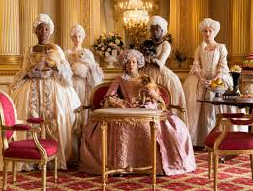
The Bridgerton star reflects on her challenges as a biracial woman navigating the industry
Golda Rosheuvel, best known for her role as Queen Charlotte in Bridgerton, has shared her experience of being rejected for a role in the late 1990s due to being described as “too exotic.” The British-Guyanese actress, 52, recalled how casting opportunities were extremely limited for biracial women during the early stages of her career.
One role in particular — Mary Magdalene in the hit musical Jesus Christ Superstar — stands out as a pivotal moment. Rosheuvel had been the understudy in a West End production and had performed the signature song I Don’t Know How To Love Him throughout a national tour. However, during her audition for a filmed version of the show, she faced unexpected rejection.
“I didn’t get that role. I was told I was too exotic and my eyes were too close together, and they gave me a role in the ensemble instead,” she explained in a conversation with Bustle. “I was hurt, but I had to have a serious conversation with myself. What was I going to do about this? It was the first time I’d ever heard such comments, and it forced me to question what ‘exotic’ even meant.”
She remembers standing in front of a mirror, confronting her own reflection and beauty while feeling powerless to change how others perceived her. “How can you deny me a role that I had performed for two years just because I look ‘exotic’?” she asked herself.
Although she was cast in the ensemble rather than the lead, Rosheuvel later secured roles in acclaimed shows like Death in Paradise, Silent Witness, Luther, and Coronation Street — all leading to her iconic role in Bridgerton. She described the initial setback as a lesson, stating, “I’m empowered by the experience. I come from a background of learning to persevere. Although it hurt at the time, I learned to stand up and keep going.”
Reflecting on her role as Queen Charlotte, Rosheuvel shared her pride in representing biracial experiences. “I’m thrilled to be able to speak out and represent biracial artists and the unique struggles we face,” she said. “It’s not a conversation that happens enough — the journey of coming into yourself, confronting mistakes, pain, and sometimes seeking numbness through vices.”
Rosheuvel’s story highlights not only her resilience but her determination to pave the way for greater representation in an often challenging industry.












